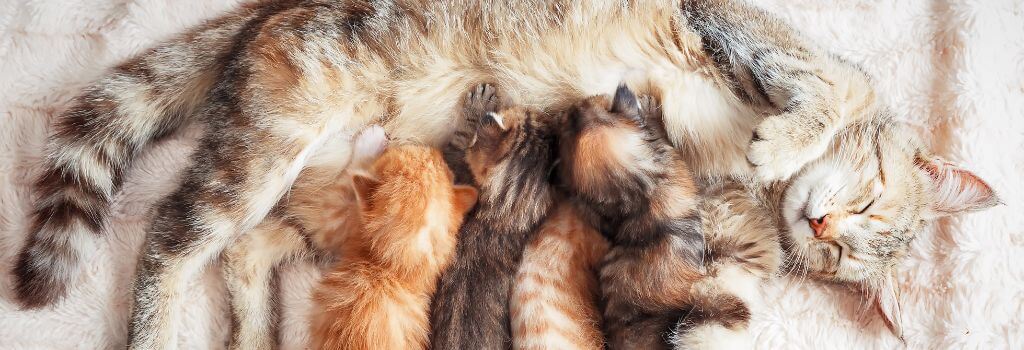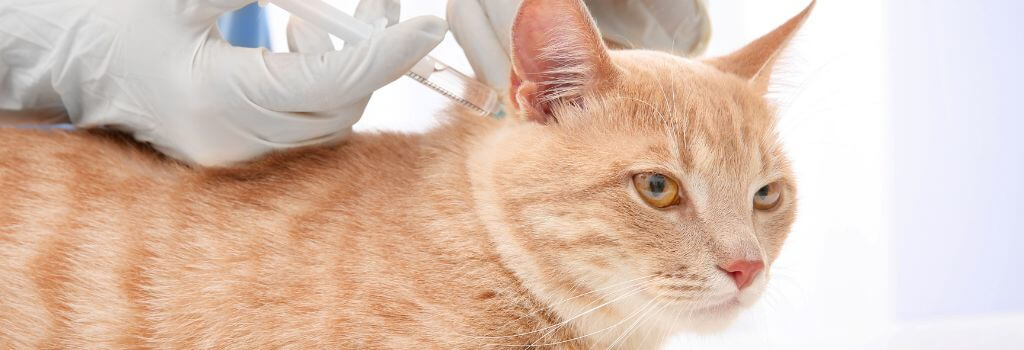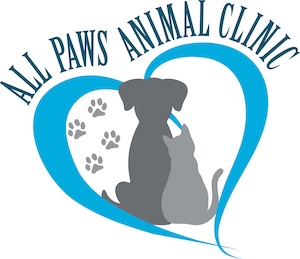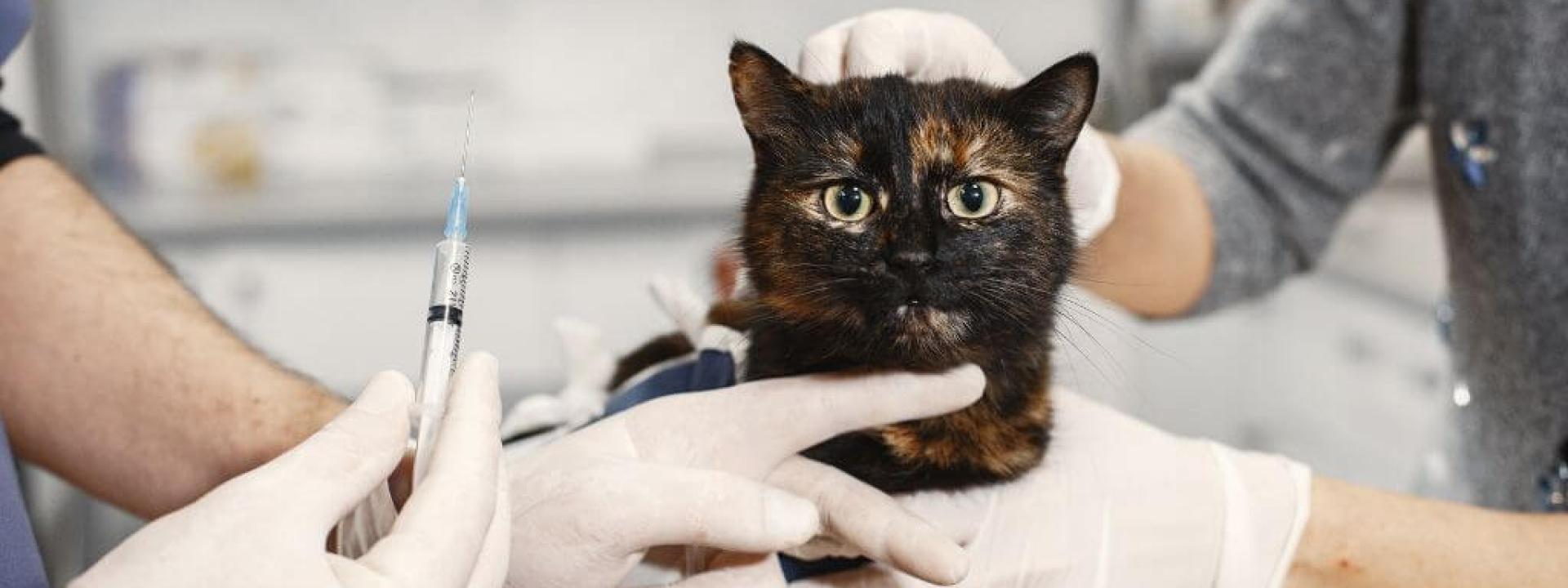Vaccinations are an essential part of veterinary medicine that keep our cats and dogs protected against potentially fatal but preventable diseases. However, research has shown that pet owners are more likely to keep up with yearly vet visits for dogs than cats, creating the opportunity for cats to be vaccinated less often than their canine counterparts.
There can be a lot of misinformation regarding cat vaccines online and in pet owner communities, so we’re here to help set the record straight and answer the cat vaccination questions most frequently asked by pet owners at our clinic.
Are Cat Vaccinations Really Necessary?
This is the question pet owners ask most when it comes to vaccinations, and our answer will always be “Yes!” Vaccinations are crucial for a cat’s overall health because they protect them from serious and potentially fatal diseases and can work within a cat’s body to strengthen their immune system.
Cornell University’s Feline Health Center defines vaccinations for cats as “preparations that resemble infectious agents like bacteria or viruses but are not pathogenic (disease causing).” After being administered, vaccines essentially “train” a cat's immune system to recognize infectious agents, so when one enters a cat’s body, the cat’s immune system responds by producing antibodies or activating cells to kill the agent.
All of the diseases that we are currently able to vaccinate cats against are preventable diseases, and vaccines are considered highly effective in protecting cats against them.
However, when discussing how vaccines work, it is important to note that no vaccine is 100% effective. There are a number of external factors that can impact the degree of effectiveness in individual cats. Age, the condition of a cat’s immune system, medication use, stress, and unsanitary living conditions can all affect how a cat’s body and immune system respond to the infectious agents being introduced. Some cats may even have genetic differences that affect how their immune systems respond to vaccines, altering their efficacy in that specific cat.
Every cat is different, so it’s important to work closely with a veterinarian to make sure your cat’s vaccination plan is completely tailored to them and their specific needs.
What Cat Vaccinations Are Typically Recommended, and What Are They For?
The vaccinations your veterinarian recommends will typically depend on a few factors. Your cat's lifestyle (indoor only vs. outdoor access), overall health, and any pre-existing medical conditions can all affect which vaccines are recommended for them.
The vaccines that will be important for your cat’s health are the FVRCP, Rabies, and, sometimes, the FeLV vaccine.
- FVRCP: This combination vaccine protects against feline viral rhinotracheitis, feline calicivirus, and feline panleukopenia. Feline Viral Rhinotracheitis (FVR) is a leading cause of upper respiratory infections in cats. Feline Calicivirus (C) is a respiratory disease that affects a cat's lungs and mouth, often causing sores around the gums. Feline Panleukopenia (P), also known as feline distemper, is a highly contagious virus that can be fatal. It primarily manifests as a gastrointestinal disease with symptoms such as lethargy, vomiting, diarrhea, and a high fever.
- FeLV: Protects against feline leukemia which can cause a variety of health problems, including cancer, blood disorders, and immune deficiency. This disease can be transmitted through close contact with other cats and is usually only given to cats with outside access.
- Rabies: Rabies is a fatal but preventable viral disease. It can be spread to people and pets through the bites and scratches of an infected animal. The rabies vaccine is required by law in many states and is considered a core vaccine.
Vaccination Schedules for Cats
If you’ve ever heard your veterinarian refer to a vaccination schedule, they’re talking about their recommended plan for administering vaccines to your cat at specific ages or intervals that they deem appropriate based on your cat’s overall health.

Vaccinations for kittens
Kittens are typically the age group of cats most susceptible to contracting infections, due to their immune system being weak only just beginning to develop. Vaccinating kittens at the appropriate time sets a strong foundation for their immune system and protects them from preventable diseases that could potentially create lifelong health complications for them.
Kittens typically receive their first FVRCP vaccine at 6–8 weeks, with boosters every 3–4 weeks until they are 16–20 weeks old. The first rabies vaccine is usually given when they are around 12–16 weeks old.
Vaccinations for adult cats
After a cat has been appropriately vaccinated as a kitten, they’ll need to keep up with their vaccinations throughout the rest of their life in order to stay protected. Adult cats who have outdoor access should receive a FeLV booster every 1-2 years and FVRCP every 1–3 years. Rabies vaccines should be given every 1–3 years, depending on state laws.
Are There Risks or Side Effects Associated With Cat Vaccinations?
While the benefits of vaccines outweigh the risks, some cats may experience side effects from vaccinations that can include lethargy, loss of appetite, swelling or redness at the injection site, and a slight fever, which usually resolve quickly.
If My Cat Is Going To Strictly Live Indoors, Do They Still Need to Be Vaccinated?
If your cat spends most or all of its time inside, you may think you’re in the clear and that your safe is without being vaccinated. But that couldn’t be more wrong. Regardless of whether they spend time indoors or outdoors, all cats are at risk of contracting these preventable diseases that can lead to serious health complications and even shorten their lifespan.
Indoor cats still need to be vaccinated as some of these diseases can still be contracted through infected clothing or other items brought into your home and even through window screens. If you have questions or concerns about

Why Is It Important to Avoid Missing a Cat Vaccination?
When it comes to cat vaccinations, it's crucial to avoid missing any scheduled appointments because vaccines work by "priming" your cat's immune system, and skipping a dose can significantly reduce their protection against potentially serious diseases.
The effect of missing a vaccination will depend on your cat’s age and the vaccination missed as well as the length of the gap created by the missed dose. In some cases the missed dose can be given right away without any additional intervention from your veterinarian, while in others an additional dose may be required a few weeks later.
In the event that your cat does miss any vaccinations, you’ll need to work closely with your veterinarian in order to determine the best avenue for getting your cat back up-to-date.
If you have questions and you'd like to reach out to us, you can call us directly at (561) 790 9225, or you can email us at [email protected]. Don't forget to follow us on social media Facebook, Instagram.

